When it comes to addressing a hernia, choosing the best surgery is paramount for effective and lasting results. Hernias occur when an organ or tissue protrudes through a weak spot or opening in the surrounding muscle or connective tissue. Selecting the most suitable surgical approach is crucial for minimizing complications and ensuring a successful outcome. In this context, exploring the options available and understanding the key factors that contribute to the effectiveness of hernia repair surgeries becomes imperative. Let’s delve into the considerations that can help identify the best surgery for hernia, taking into account factors such as hernia type, patient characteristics, and surgical techniques.
Types of Hernia Surgeries
There are several types of hernia surgeries, and the choice depends on the type and severity of the hernia. Common hernia surgeries include:
- Herniorrhaphy (Open Hernia Repair):
- In this traditional approach, the surgeon makes an incision at the site of the hernia, pushes the herniated tissue back into place, and then repairs and reinforces the weakened abdominal wall with sutures or mesh.
- Laparoscopic Hernia Repair:
- This minimally invasive procedure involves making small incisions through which a laparoscope and surgical instruments are inserted. The surgeon uses the laparoscope to guide the repair and may use mesh to strengthen the abdominal wall.
- Robotic Hernia Repair:
- Similar to laparoscopic surgery, robotic hernia repair involves the use of a robotic system for greater precision and control during the procedure.
- Tension-Free Mesh Repair:
- In tension-free mesh repair, a mesh is placed over the hernia site to reinforce the abdominal wall, reducing tension and lowering the risk of hernia recurrence.
- Inguinal Hernia Repair:
- Specific to inguinal hernias, this surgery addresses the protrusion of tissue through the inguinal canal. It can be done through open or laparoscopic techniques.
- Femoral Hernia Repair:
- This surgery focuses on repairing hernias that occur in the femoral canal, commonly done through open or laparoscopic methods.
Benefits of Hernia Surgery
- Relief from Symptoms: Hernia surgery effectively relieves the symptoms associated with hernias, such as pain, discomfort, and the bulging of tissue.
- Prevention of Complications: Surgery prevents potential complications like strangulation or obstruction of the hernia, which can be serious and require emergency intervention.
- Improved Quality of Life: After hernia surgery, individuals often experience an improvement in their overall quality of life, with a reduced risk of recurrence.
- Enhanced Physical Activity: Following a successful recovery, patients can typically resume normal physical activities without the limitations imposed by the hernia.
- Minimization of Hernia Recurrence: The use of mesh in certain procedures reduces the risk of hernia recurrence, providing a more durable repair.
Which is the Best Surgery for Hernia?
The best surgery for hernia depends on various factors, including the type and size of the hernia, the patient’s overall health, and the surgeon’s expertise. Laparoscopic hernia repair is often preferred for its minimally invasive nature, quicker recovery, and reduced postoperative pain. However, the choice may vary based on individual circumstances.
Factors Influencing the Choice of Hernia Surgery
- Hernia Type and Size:
- Different hernia types may require specific surgical approaches. The size of the hernia can also influence the choice of surgery.
- Patient’s Health Condition:
- The overall health and medical history of the patient play a crucial role. Some individuals may not be suitable candidates for certain procedures due to underlying health issues.
- Surgeon’s Expertise:
- The surgeon’s experience and proficiency in a particular technique may influence the choice of surgery.
- Risk Factors:
- Individual risk factors, such as the risk of recurrence or complications, may guide the decision-making process.
- Patient Preferences:
- Patient preferences and their comfort with different surgical approaches are important considerations.
It is essential for individuals to consult with their healthcare providers to determine the most appropriate hernia surgery based on their unique circumstances. The decision should be made collaboratively between the patient and the healthcare team after thorough evaluation.
What are the risks of hernia surgery?
While hernia surgery is generally safe, it does carry some risks and potential complications. These may include:
- Infection: Infection at the surgical site is a possible complication, although it’s relatively uncommon.
- Bleeding: Excessive bleeding during or after surgery can occur, requiring further medical attention.
- Pain or Discomfort: Postoperative pain is typical, but in some cases, it can persist longer than expected.
- Recurrence: Despite successful surgery, there’s a small risk of the hernia returning.
- Nerve Damage: Nerves near the surgical site may be affected, leading to temporary or, rarely, permanent sensory changes.
- Adverse Reaction to Anesthesia: Some individuals may experience allergic reactions or other complications related to anesthesia.
- Chronic Groin Pain: Particularly associated with inguinal hernia repair, some individuals may experience chronic groin pain.
- Seroma or Hematoma Formation: Fluid accumulation (seroma) or blood clots (hematoma) can develop at the surgical site.
It’s crucial to discuss these potential risks with your surgeon before the procedure, and healthcare providers take steps to minimize these risks during surgery.
What can I do to prepare for hernia surgery?
- Medical Evaluation: Undergo a thorough medical evaluation to assess your overall health and identify any pre-existing conditions that may affect the surgery.
- Discuss Medications: Talk to your healthcare team about your current medications, as some may need to be adjusted or temporarily stopped before surgery.
- Fasting: Follow fasting guidelines provided by your healthcare team, typically requiring abstaining from food and liquids for a specified period before surgery.
- Arrange Transportation: Plan for transportation to and from the surgical facility, as you may not be able to drive immediately after the procedure.
- Postoperative Care: Prepare your home for postoperative care, ensuring you have necessary supplies and support.
- Follow Preoperative Instructions: Adhere to any preoperative instructions provided by your surgeon, including specific hygiene practices.
You may want to read : What is hernia repair surgery in female?
What can I expect after hernia surgery?
- Recovery Time: Recovery times vary depending on the type of surgery. Some people can resume normal activities within a few days, while others may need several weeks.
- Pain Management: Postoperative pain is common but is usually manageable with prescribed pain medications.
- Activity Restrictions: Your surgeon will provide guidelines on activities to avoid during the initial recovery period, such as heavy lifting or strenuous exercise.
- Follow-up Appointments: Attend scheduled follow-up appointments to monitor your recovery and address any concerns.
- Gradual Resumption of Activities: Follow your healthcare team’s guidance on gradually resuming normal activities, including work and exercise.
Is Laparoscopic Hernia Surgery Better than Open Surgery?
Both laparoscopic and open hernia surgeries have their advantages and considerations. Laparoscopic surgery is often favored for its minimally invasive nature, resulting in smaller incisions, less postoperative pain, and quicker recovery. However, the choice between laparoscopic and open surgery depends on factors such as the type and size of the hernia, the surgeon’s expertise, and the patient’s overall health. Consult with your surgeon to determine the most suitable approach based on your individual circumstances.
FAQs about Surgery for Hernia in Dubai
What is the best type of hernia surgery?
The best type of hernia surgery depends on various factors, including the type and size of the hernia, the patient’s overall health, and the surgeon’s expertise. Common types include open hernia repair, laparoscopic hernia repair, and robotic-assisted surgery. The choice is often personalized based on individual circumstances.
What is the most common hernia needing surgery?
Inguinal hernias are the most common type requiring surgery. These occur when a portion of the intestine or abdominal tissue protrudes through the inguinal canal, causing a noticeable bulge in the groin area. Inguinal hernia repair is a routine and well-established surgical procedure.
Is it better to get hernia surgery or not?
Whether to undergo hernia surgery depends on factors such as the size and type of the hernia, symptoms experienced, and the risk of complications. In many cases, surgery is recommended to prevent potential complications like strangulation or obstruction. Consultation with a healthcare professional is crucial to make an informed decision based on individual circumstances.
Who is the best surgeon in Dubai for hernia?
Determining the best surgeon for hernia in Dubai involves considering factors such as the surgeon’s experience, expertise in hernia repair, and patient reviews. It’s advisable to consult with multiple surgeons, inquire about their experience with hernia surgeries, and consider seeking recommendations from healthcare professionals or individuals who have undergone similar procedures in Dubai.






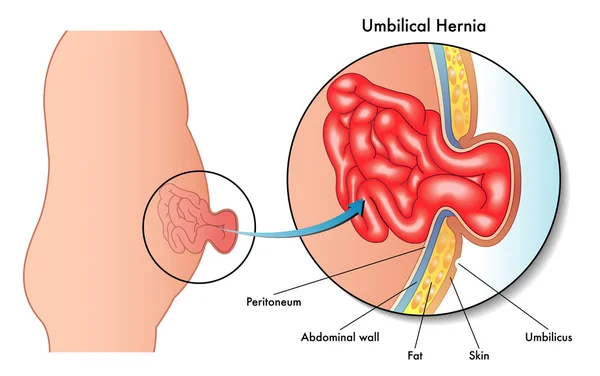
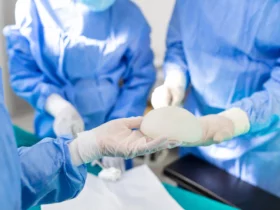

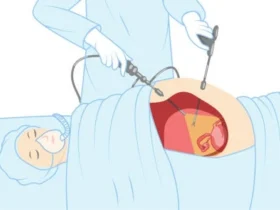


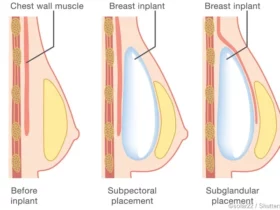
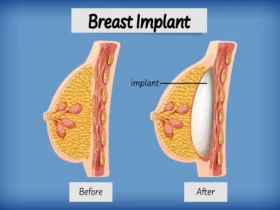

Leave a Reply